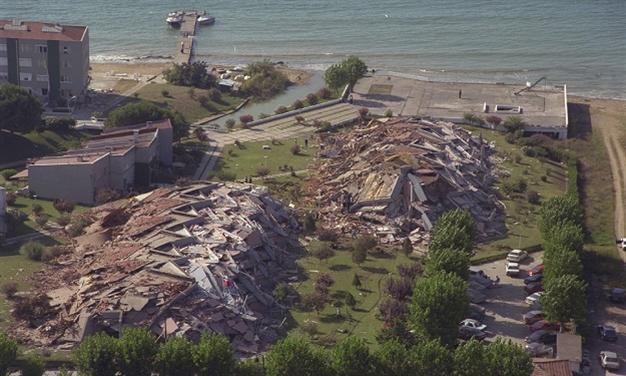ECHR fines Turkey over collapse of buildings in 1999 quake
STRASBOURG
 The European Court of Human Rights (ECHR) has fined Turkey for failure of the authorities to determine those responsible for the collapse of buildings in the deadly Aug. 17, 1999 earthquake, which shock the northwest of the country and claimed the lives of more than 18,000 people.
The European Court of Human Rights (ECHR) has fined Turkey for failure of the authorities to determine those responsible for the collapse of buildings in the deadly Aug. 17, 1999 earthquake, which shock the northwest of the country and claimed the lives of more than 18,000 people.The court held, unanimously, that there had been a violation of Article 2 (right to life) of the European Convention on Human Rights.
As a result, Turkey was ordered to pay 30,000 euros in non-pecuniary damages jointly to Betül Akan and Mehmet Özel, 30,000 euros jointly to Menekşe and Ali Kılıç, 30,000 euros jointly to Güher and İsmail Erdoğan, 30,000 euros each to Salim Çakır and Şehriban Yüce Ergüden, and 4,000 euros in costs and expenses to the latter two applicants, over the loss of their relatives.
The ECHR found in particular that the national authorities had not acted promptly in determining the responsibilities and circumstances of the collapse of the buildings that caused the deaths. The ECHR stated that Article 2 imposed on states an obligation to take the necessary measures for the protection of the lives of individuals, even in the event of natural catastrophes.
In addition, two partners of the V.G. Arsa Ofisi company have been convicted for causing the death sof multiple people, as the materials used in their construction were deficient and caused the collapses.
The ECHR noted that the Turkish authorities had been fully aware of the risks to which the disaster zone was subject. The local authorities, with their responsibility to issue building permits, thus had a role and responsibility of primary importance in the prevention of risks related to the effects of an earthquake, it stated.
The court also noted that the criminal proceedings in Turkey had lasted for more than 12 years, even though only five individuals were prosecuted and the expert reports were ready at an early stage. Two of the defendants were convicted, while the proceedings were time-barred in the case of the three others. The ECHR thus concluded that the proceedings did not satisfy the requirement of promptness and the authorities did not address the circumstances in which the buildings collapsed, thus failing to avoid any appearance of tolerance of illegal acts or collusion in such acts.
















